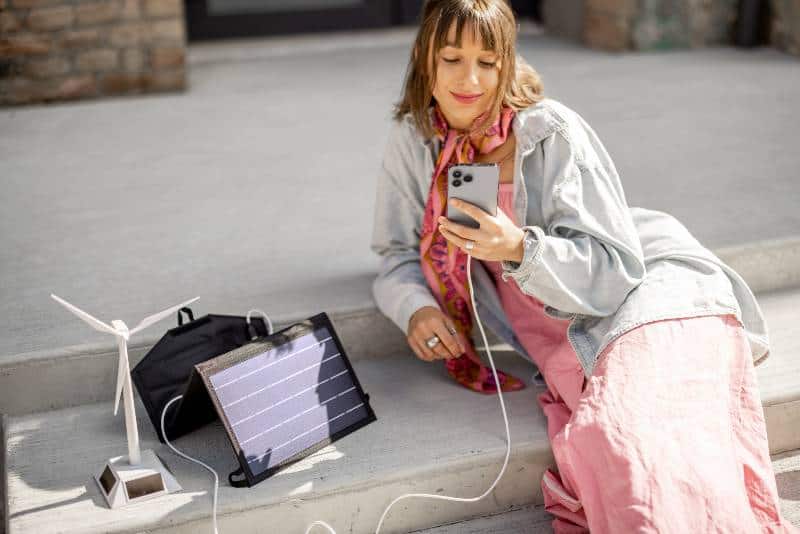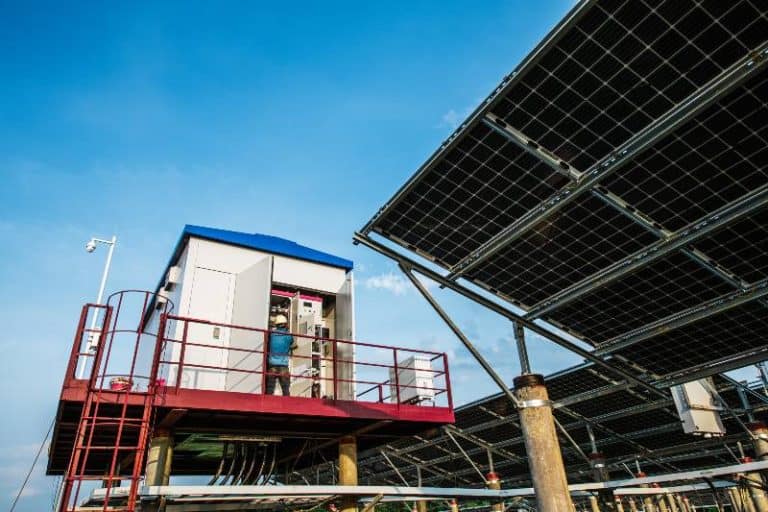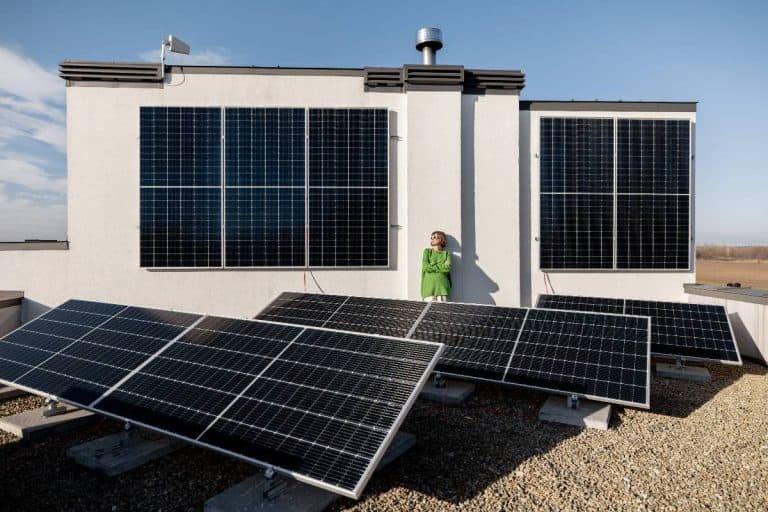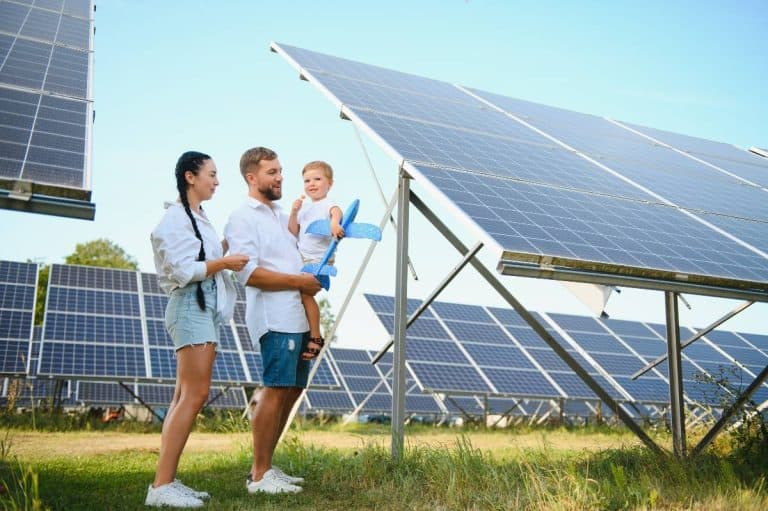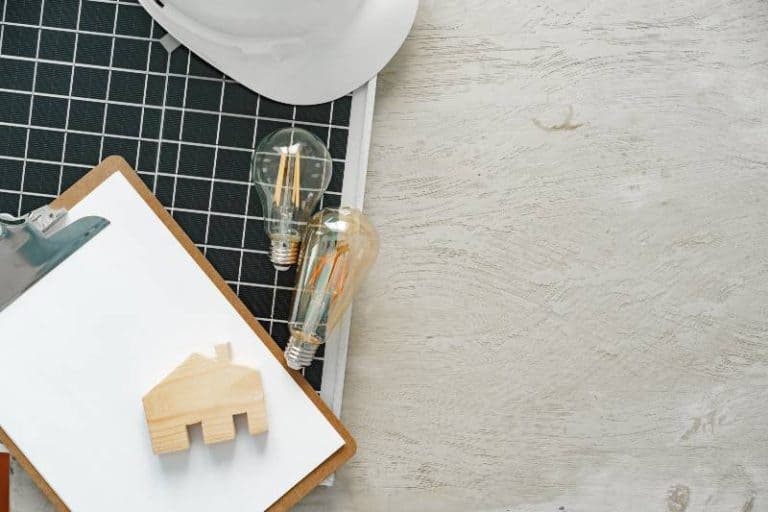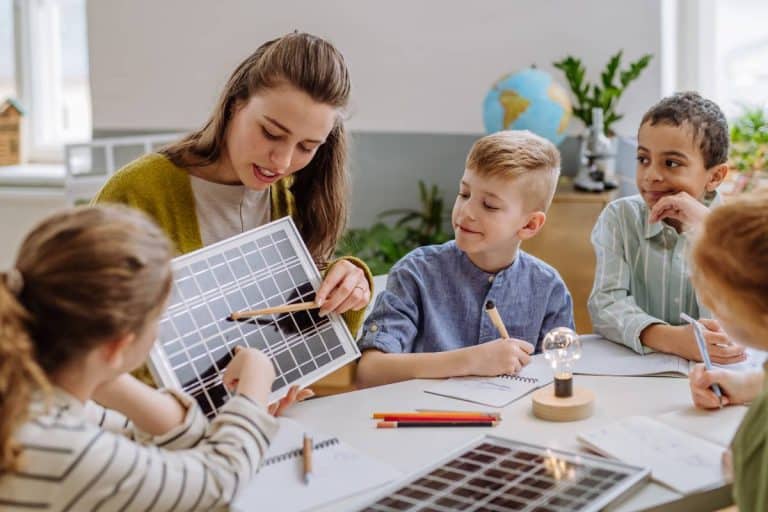The Truth About How Long Portable Solar Panels Last
Portable solar panels might be the answer if you’re looking for a way to reduce your carbon footprint. Not only are they good for the environment, but they can also save you money on your electric bill. However, many people are unsure about How long do portable solar panels last. In this blog post, we will answer this question.
A portable solar panel kit has a lifespan of between 25 and 30 years before its energy output starts to gradually decrease. This is the average lifespan of the kit.
Key Takeaways
- A portable solar panel kit has a lifespan of between 25 and 30 years before its energy output starts to gradually decrease.
- The location of usage is a major factor in determining how efficient your solar panels are.
- Most solar panels carry a 25 years warranty, but some may have 10 or even 15 years of coverage.
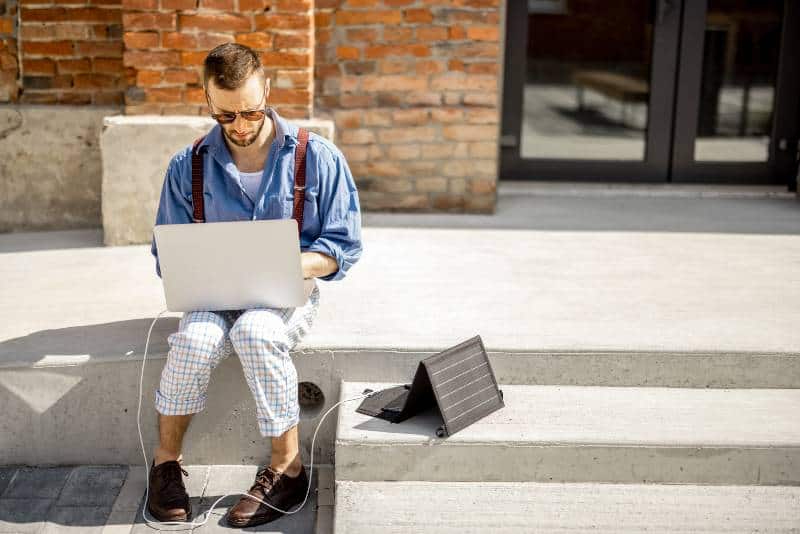
What is the lifespan of solar panels?
Solar panels, also referred to as photovoltaic or PV panels are constructed to have a lifespan greater than 25 years. Many solar panels that were installed in the 1980s are still operating at or above the capacity that was originally anticipated for them.
What Makes Your Solar Panels Become Less Efficient?
There are a number of reasons why your solar panels may become less efficient. Here are some of them:
The Heat
The hotter a solar panel gets, the more of its electrons are already excited—and so cannot be used to generate electricity. That lowers the voltage that can be generated and also reduces efficiency.
Wind
Although the wind does not provide any additional power to the sun’s rays when they are used to power panels, the effect of wind does increase the efficiency of solar power. This is how it should go down.
Because of the physical processes that take place when a solar panel generates electricity, its overall efficiency will suffer if it is allowed to become overly warm. On the other hand, solar panel temperatures that are lower lead to increased efficiency.
The effect that temperature has on the performance of solar cells can be summarized as follows: warmer panels, on the other hand, restrict the flow of energy similar to an electric current more than cooler panels do.
This is where the breeze enters the picture. Solar panels are cooled by the wind. It does make a difference, even though it won’t have a dramatic effect on the overall production of your solar panels.
Solar panels cooled by 1 degree Celsius are 0.05 percent more efficient. This percentage will add up to a significant sum over time.
Rain
Solar panels are made of photovoltaic cells, which convert light energy into electricity. To make the most out of your solar panels, you need to understand how they work. This will help you maximize the amount of energy that you can get from them.
Snow
Snow on solar panels is a common problem that can cause your panels to become less efficient. Snow can build up on the panels, blocking sunlight from reaching them and reducing their efficiency.
If snow melts and refreezes, it can create a layer of ice on top of the panel that blocks light from reaching it. This can happen quickly if you live in an area where there’s a lot of snowfall and temperatures drop below freezing for long periods.
Dirt and Debris
Dirt and debris are the main factors that make your solar panels less efficient. Solar panels work by absorbing the sun’s energy and turning it into electricity. As dirt and debris build up on the panel, this process becomes harder and less efficient.
Location of Usage
The location of usage is a major factor in determining how efficient your solar panels are. If you have them installed in an area that receives direct sunlight, they will be more efficient than if they were installed in an area that doesn’t get direct sunlight. The more direct sunlight they receive, the greater the efficiency.
What Are the Main Types of Solar Panel Technology?
Solar panels are devices that convert sunlight into electricity. They’re made up of photovoltaic cells, which are conductors that generate electrical currents when exposed to light. The main types of solar panel technology include:
Monocrystalline
Monocrystalline solar panels are made of monocrystalline silicon cells. These cylindrical ingots of high-purity silicon are sliced into wafers and polished to form the cells
Polycrystalline
Polycrystalline solar cells, just like monocrystalline solar cells, are constructed out of individual silicon crystals. The silicon crystal, on the other hand, when it is allowed to cool and fragment on its own rather than being extruded as a single pure ingot, is the key difference. These pieces are melted in an oven, then formed into cubes, and finally sliced into wafers of a uniform thickness.
As a result, this amalgam is composed of a variety of distinct crystals, as opposed to the single crystal that is present in monocrystalline solar cells. Since the manufacturing process for polycrystalline cells is less stringent than that for monocrystalline cells, it is possible to produce more solar cells in a shorter amount of time and at a lower cost.
Thin Film
Solar panels made with a thin film have a lower power capacity and a lower efficiency than panels made with monocrystalline or polycrystalline solar cells.
The efficiency of the Thin-Film system can range anywhere from 7% to 18%, depending on the type of photovoltaic material that is utilized in the cells; however, on average, the system has an efficiency of somewhere around 7%.
It is essential to point out that even though crystalline cells are more efficient than thin-film cells, thin-film cells have a higher theoretical efficiency than silicon. This is even though thin-film cells have a lower actual efficiency.
As a result of this, a great number of people believe that thin-film cells will one day be even more efficient than silicon.
How Long Do Different Types of Solar Panel Last?
Solar panels have become a common sight in many parts of the world. They can be found on homes, in backyards, and on rooftops. But how long do they last?
Flexible Panels
Solar panels are a popular choice for those looking to reduce their energy costs and reliance on the grid. One of the main attractions of solar panels is their longevity; a standard solar panel is built to last for 20 to 25 years. This long lifespan means that you can enjoy decades of reduced energy costs, with little maintenance required.
Portable Panels
PV panels come with a 25-year warranty but can last as long as 30 or 40 years. What’s more, they have extremely low operating and maintenance costs.
Solar Batteries
The lifespan of home solar battery units ranges from 5-15 years; if you install one today, you’ll likely need a new unit in the coming decades as your original system ages.
Portable Solar Panel Efficiency Degradation
At first glance, solar panels seem like a great way to power your outdoor adventures. They’re easy to pack and set up, and they provide a constant energy source for your devices. However, there is one major problem: over time, the efficiency of a solar panel will degrade. The rate at which this degradation occurs depends on several factors, this is what we’ll discuss in the next paragraphs.
How You Can Reduce Efficiency Degradation?
If you are looking for ways to reduce the efficiency degradation of your solar panels, you might want to consider the following:
Avoid installing solar panels in shaded areas
To reduce efficiency degradation, you should avoid installing solar panels in shaded areas.
When placing your solar panels, it is important to consider the amount of sunlight your panels will receive and how much shade they may receive from surrounding trees, buildings, and other structures. If your solar panels are in an area that receives a lot of shade, they will not produce as much electricity as they would if they were placed in an area where they received more sunlight.
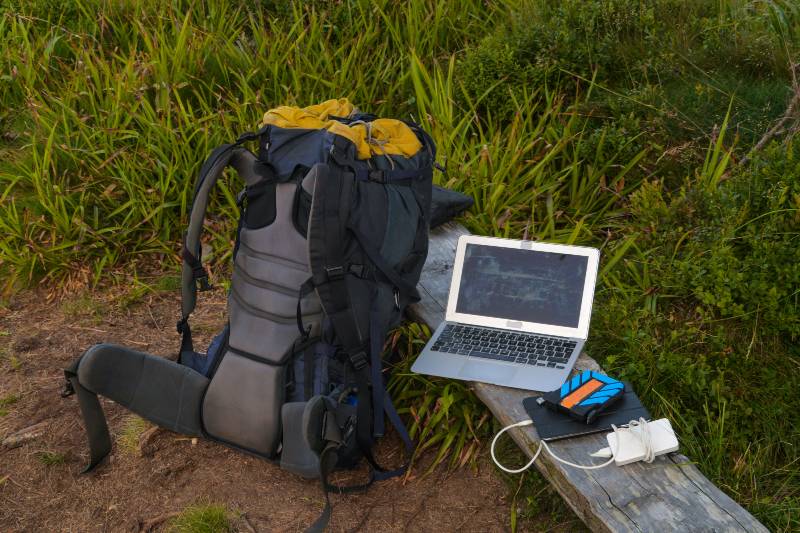
Warranty Period by Different Brands
UV Rays (LID)
How long do portable solar panels last?
Most solar panels carry a 25 years warranty, but some may have 10 or even 15 years of coverage. If you’re looking for a more comprehensive warranty, you can always go with a manufacturer that offers longer coverage.
Weather
Customers typically invest tens of thousands of dollars when they switch to solar energy systems. A Solar panel system is typically the most expensive piece of equipment included in a solar power system. But being a solar panel is not an easy job by any means.
They spend all day, every day in the sun, where they are subjected to significant temperature swings and a variety of severe weather conditions. Depending on the environment, solar photovoltaic (PV) modules might have to withstand hail, ice storms, or even winds as strong as hurricanes.
Solar panel warranties and homeowner’s insurance can both assist in protecting the investment that your customer has made in solar energy.
How to Make Your Portable Solar Panels Last Longer
Choose a Reliable Brand
One of the best ways to make your solar panels last longer is to choose a reliable brand. You don’t need to spend thousands of dollars on an ultra-high-end solar panel, but you do want a manufacturer who has been around for a while and has a good reputation.
There are plenty of companies out there that will make you believe their products are the best, but in reality, they’re made from poor materials and have unreliable warranties.
If you do choose to buy from a company that doesn’t have as much experience or isn’t as well-known, be prepared for problems down the line when you need to repair or replace them.
Change Invertor (Usually After 10 Years)
Inverters are what convert the DC power from your solar panels into AC power that your appliances can use. They’re very reliable and can last for many years, but they’re also very expensive, so most people don’t replace them until their panels start failing.
Maintenance Tips
Maintaining your solar panels is a breeze. Here are a few tips to keep in mind:
1. Regularly Get Your Panels Checked and Maintained
If you want them to last, you need to get them checked and maintained regularly. The best way to do this is by having a professional come out every few months or so. They’ll check for damage and make sure everything is working properly.
Even if there’s nothing wrong, it’s still a good idea to have a professional come out every few months or so just so they can look at the equipment and make sure everything is running as it should be.
2. Maintain and Replace Batteries
The typical photovoltaic system used to generate household electricity is quite simple, as it consists of only a few basic components. Of course, the system features solar panels that gather the sun’s energy, an inverter that makes the energy that’s collected usable in a household setting, and batteries that store the excess energy generated by your panels. The batteries represent a crucial component in the system because not every day can be sunny, and your solar power storage determines how long you can power your home on dreary, overcast days.
3. Keep Your Panels Free of Debris and Other Materials That May Damage It
When your solar panels are installed, they’re exposed to the elements. That means they’ll get dirty over time. And while a solar system can’t really be damaged by wind or rain, debris and other materials can cause damage by accumulating on the surface of your panels and blocking the sun from reaching them.
If you notice that your panels are no longer producing as much energy as they used to, it’s possible that debris has built up on them. You can use a soft brush to sweep off any debris and reset the performance of your solar panels.
4. Proper Storage
This is where proper storage of your solar panel systems comes into play. If you don’t store them properly, you risk damaging them and losing their efficiency. This could result in having to replace them sooner than necessary, which will cost you time and money. That’s why we’ve put together this list of tips for proper storage so that you can protect your investment and get the most out of it.
Avoid Purchasing Used Portable Solar Panels
Purchasing used portable solar panels may seem like a good idea, but it’s often not.
Used portable solar panels can be difficult to test and determine their condition. If you receive a faulty panel, you’re stuck with it. And if the panel breaks down later, there could be no warranty on the product either.
The best way to avoid these pitfalls is to purchase new portable solar panels from a reputable manufacturer that offers a warranty on its products.
How Long Do Portable Solar Panels Last FAQs
Here are some questions we get asked about solar panels:
Do unused solar panels degrade over time?
Just like a lot of other equipment, solar panels don’t perform at 100% for their entire life and then just stop working in year 30. Instead, solar panels, at a very slow rate, produce less electricity as they age. This process is called degradation.
What will happen to solar panels after 25 years?
According to studies, the life expectancy of solar panels is about 30 years before decommissioning. During the life of photovoltaic panels, a 20 percent decrease in power capacity might occur. Between the first 10 to 12 years, the maximum decrease in efficiency is 10 percent, and 20 percent when reaching 25 years
How often should solar panels be cleaned?
It is generally recommended to clean solar panels every 6 months to a year to maintain the productivity, efficiency, and effectiveness of the panels. However, based on where you live and the level of dirt and pollution, the need for cleaning may be more frequent.
Do portable solar panels need to be grounded?
Yes, like any other electrical device, portable solar panels have to be grounded. Doing so ensures that any stray electrical charge in the body of the device is immediately dispensed into the ground and does not electrocute anyone who comes into contact with it.
Do portable solar panels work in the rain?
Yes, but the actual amount of solar power generated during such days is dependent on the density of cloud coverage. Thus, the solar panel system’s production is not as consistent and considerably reduced during cloudy days and rainy days.
Conclusion
Portable solar panels are a great way to generate electricity, but it’s important to know how to properly care for them so that they last as long as possible. By following the tips above, you can extend the life of your portable solar panels and get the most out of your investment.
